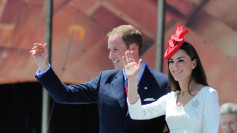Tens of thousands of Israelis took to the streets of Tel Aviv and Jerusalem over the weekend in the largest anti-government protests since the country went to war against Hamas in October. The demonstrations, which stretched for blocks around the Knesset, Israel's parliament building, saw protesters demanding the release of hostages held by Hamas, calling for early elections, and urging Prime Minister Benjamin Netanyahu to resign.
The protests highlight the growing discontent among Israelis over the government's handling of the war, which has claimed the lives of over 32,000 Palestinians and left more than a million people displaced in Gaza. The demonstrators also blame Netanyahu for the failures of the October 7 terror attack, in which Hamas killed some 1,200 people and took 250 others hostage.
While roughly half of the hostages were released during a weeklong cease-fire in November, attempts by international mediators to secure the release of the remaining captives have failed. Families of the hostages believe time is running out and are becoming increasingly vocal about their displeasure with Netanyahu's leadership.
"We believe that no hostages will come back with this government because they're busy putting sticks in the wheels of negotiations for the hostages," said Boaz Atzili, whose cousin, Aviv Atzili, and his wife, Liat, were kidnapped on October 7. Liat was released, but Aviv was killed, and his body remains in Gaza. "Netanyahu is only working in his private interests."
The protests have brought to the fore deep societal divisions in Israel that were initially papered over by the united response to the October 7 attack. In the months before the attack, hundreds of thousands of Israelis participated in repeated demonstrations against judicial reforms proposed by Netanyahu's government, which critics said weakened the country's checks and balances.
Netanyahu, who underwent hernia surgery on Sunday, faces pressure from both the left for not doing enough to bring home the hostages and a possible rebellion on his right flank over exemptions from mandatory military service enjoyed by Israel's ultra-Orthodox community. The Israeli Supreme Court last week ordered the government to stop subsidizing Jewish religious seminaries whose students defied service orders, further complicating Netanyahu's political challenges.
In addition to domestic pressure, Israel is facing international outrage over the way it has pursued the war, which has resulted in staggering casualty figures and scenes of devastation across Gaza. The United States, one of Israel's most ardent supporters, has been attempting to persuade Israel to call off a planned ground incursion into Rafah, a city on Gaza's border with Egypt where more than 1.3 million people are seeking refuge from the fighting.
Despite the growing pressure, Netanyahu remains defiant. In a nationally televised speech before his surgery, he said that calling new elections would paralyze Israel for six to eight months and stall hostage talks. He also repeated his vow for a military ground offensive in Rafah, stating, "There is no victory without going into Rafah."
As the war continues, the humanitarian crisis in Gaza worsens. The United Nations and its partners warn that famine could occur in the devastated and largely isolated northern Gaza, with humanitarian officials calling for Israel to allow far more aid to enter by road. Gaza's Health Ministry reported that at least 32,782 Palestinians have been killed since the start of the war, with women and children making up around two-thirds of those killed.






